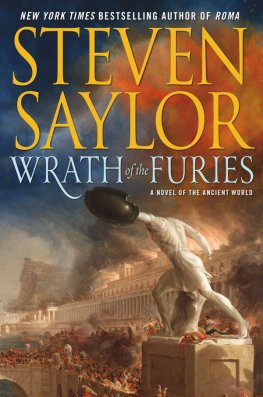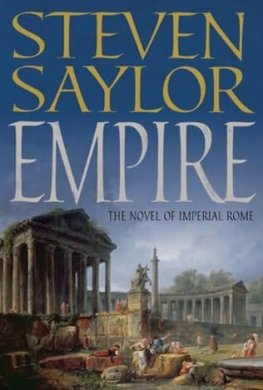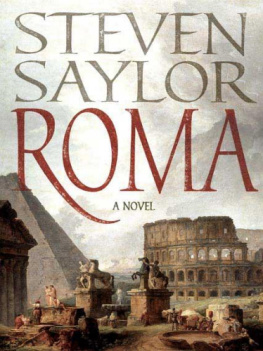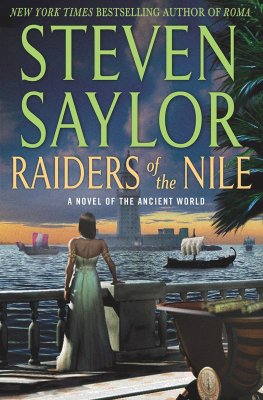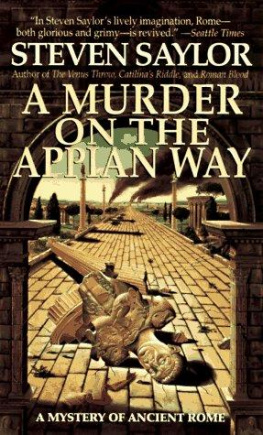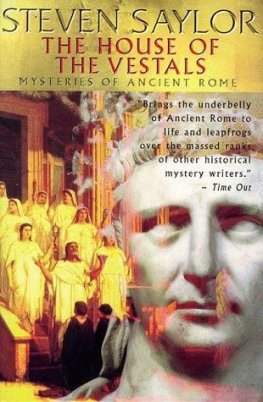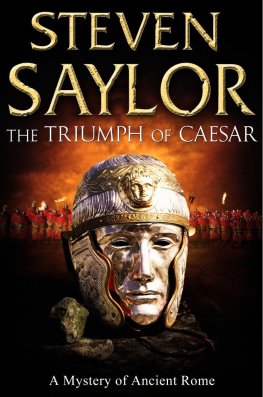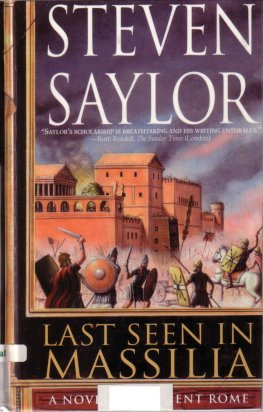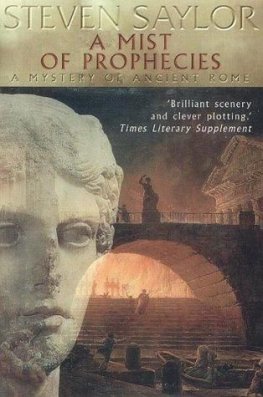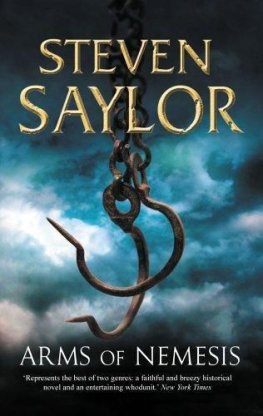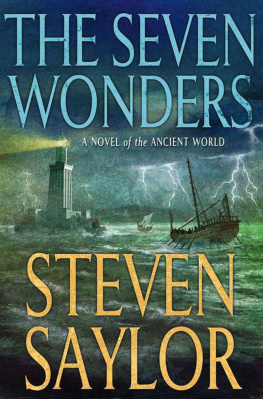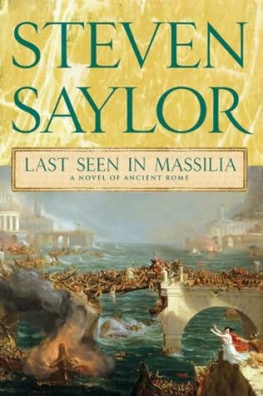Steven Saylor - Wrath of the Furies
Here you can read online Steven Saylor - Wrath of the Furies full text of the book (entire story) in english for free. Download pdf and epub, get meaning, cover and reviews about this ebook. year: 0101, publisher: St. Martin, genre: Detective and thriller. Description of the work, (preface) as well as reviews are available. Best literature library LitArk.com created for fans of good reading and offers a wide selection of genres:
Romance novel
Science fiction
Adventure
Detective
Science
History
Home and family
Prose
Art
Politics
Computer
Non-fiction
Religion
Business
Children
Humor
Choose a favorite category and find really read worthwhile books. Enjoy immersion in the world of imagination, feel the emotions of the characters or learn something new for yourself, make an fascinating discovery.
- Book:Wrath of the Furies
- Author:
- Publisher:St. Martin
- Genre:
- Year:0101
- ISBN:9781250026071
- Rating:5 / 5
- Favourites:Add to favourites
- Your mark:
- 100
- 1
- 2
- 3
- 4
- 5
Wrath of the Furies: summary, description and annotation
We offer to read an annotation, description, summary or preface (depends on what the author of the book "Wrath of the Furies" wrote himself). If you haven't found the necessary information about the book — write in the comments, we will try to find it.
Wrath of the Furies — read online for free the complete book (whole text) full work
Below is the text of the book, divided by pages. System saving the place of the last page read, allows you to conveniently read the book "Wrath of the Furies" online for free, without having to search again every time where you left off. Put a bookmark, and you can go to the page where you finished reading at any time.
Font size:
Interval:
Bookmark:
Steven Saylor
Wrath of the Furies
For the wrath of the Furies who keep watch upon mortals will not follow deeds, but I will let loose death in every form.
-AESCHYLUS, The EumenidesThe war with the Romans has begun.
How will our glorious king
Mithradates Dionysus Eupator
find time to listen to Greek poetry now?
-C. P. Cavafy, DariusPrologue:
[The fragmentary text begins in mid-sentence.]
not even allowed me to keep my own name! Instead the king insists that I continue to use that absurd pseudonym (which he himself suggested) that I took when I agreed to fake my own death and travel the world as a spy for him. So everyone here in Ephesus knows me not as the venerable Antipater of Sidon, greatest of all living poets in the Greek language, but instead as gray-bearded Zoticus of Zeugma, itinerant tutor of wayward Roman boys and all-around nonentity. The humiliation!
But oh, how I wish that were the only humiliation I have been made to suffer, or even the worst.
I would challenge him in this matter, but I have seen what happens to those who dare to cross the Shahansha-King of Kings!-as he now styles himself in the barbaric tongue of the Persians. Part Greek the king may be, but part Persian as well-and since I joined his traveling court I have seen far too much of the barbarian and far too little of the Greek!
His execution of the captured Roman general Aquillius, which I was made to witness at Pergamon, is a case in point. I have no doubt that Aquillius was a scoundrel, one of the very worst of the Roman overlords who have subjugated the Greek-speaking world. He deserved to be tried for his crimes, and punished for them. But did even Aquillius deserve the horrible death the king devised? What sort of fiend could invent such a cruel punishment, and make a public spectacle of it? I was close enough to smell the sizzling flesh. The sounds Aquillius made-his convulsions of agony-I grow faint when I think of it. Perhaps at some later date I will describe what happened, but I cannot bear to do so now.
I wonder sometimes if such a horrible fate lies in store for me-or some death even worse, devised by the kings boundless imagination.
When I remember the life I had in Rome, only a few years ago-recognized and respected by all the best people, well paid and well fed for my recitations, the envy of every poet in the city Then the agents of the king approached me, and whispered in my ear: What are you doing among these people? A Greek you are, not a Roman! The Roman conquerors have overrun your homeland. They empty our treasuries. They loot our temples. The rich they make poor with taxes. The poor they make into slaves. Any who dare to protest, they strike down with a sword. Yet here you live in luxury, reciting pretty verses to tickle their ears!
But what can I do to stop the Romans? I asked them. What can anyone do?
Have you not heard? they answered. King Mithridates of Pontus is on the march! He has taken up the mantle of Alexander, and that of Cyrus the Great as well-heir to the greatness of both Greece and Persia. Mithridates is the worlds only hope to stop these infernal Romans!
So I was seduced into the service of the king-and once I dispatched my first secret report to his agents, there could be no turning back. Even the most cultured and Greek-loving of my patrons in Rome would have had me crucified if they knew of my activities on behalf of the king.
But I was careless. The veil of secrecy grew thin. To escape discovery, I was obliged to fake my own death and to leave Rome. As the clouds of war gathered, I traveled all over the Greek-speaking world-not as Antipater the poet, but incognito, as Zoticus the nobody-carrying messages and secretly rallying support for the king. To Olympia I journeyed, and to the ruins of Corinth, and even as far as Babylon to the east and Alexandria to the south.
Sometimes I adopted a disguise, but this was rarely necessary. Antipater might be the worlds most famous poet, but it was my words that people knew, not my face. I had been living in Rome a long time, and there I was known by sight, but in Greece and Asia and even in my hometowns of Sidon and Tyre, no one knew what Antipater looked like. When an old man introduced himself as Zoticus of Zeugma, no one gave him a second glance.
Then, at last, the war began in earnest. Some say Manius Aquillius initiated the hostilities, on his own initiative and without the approval of the Roman Senate. Whoever started the war, Mithridates quickly enjoyed a string of victories in and around the province the Romans called Asia, liberating city after city-liberating them from Roman control, that is, and placing them under his own control, or that of his appointed overseers.
To celebrate his victories, Mithridates staged a triumphal tour of the liberated cities of Asia-and I received a message, written in our secret code, inviting me to join him. As I made my way from Alexandria to Pergamon, I thought: He will reward me now. The King of Kings will make me his court poet. In return for my faithful service, a grateful Mithridates will crown me with glory!
Instead, at our first meeting, before I could even begin to recite the poem I had composed for the occasion-the meeting of the worlds greatest poet and the worlds greatest king-Mithridates told me that I must continue to play the role of Zoticus. Antipater is useless to me, he said, but Zoticus-oh, as wily Zoticus you have served me well! I may yet have need of your secret services, so Zoticus you shall remain.
For a long moment, I was dumbfounded. But surely, I said, I am more valuable to you as Antipater than as Zoticus. When it becomes known that the greatest of all living poets has joined your retinue, and is eager to dedicate his art to your service, all the world will see that you are the champion of Greek culture.
I thought this would make him smile. Instead he scowled. I am already the champion of Greek culture, as everyone already knows-everyone except you, perhaps!
I stammered, unused to being at a loss for words. Ah, yes, widely known your achievements may be, but my words will make those achievements immortal.
His scowl deepened. My achievements will be immortal with or without your words-Zoticus!
It is hard for an old man with a stiff back to bow, but I bowed even lower before him. Please, King Mithridates. For whatever time I have left in this world, I would live not behind a mask, but openly and proudly as myself.
The king grew furious. You will address me as Shahansha, King of Kings! And all men shall address you as Zoticus!
But for how long, O King of Kings? I managed to utter, ashamed at the mouse-squeak that came out of my mouth.
For as long as I say. Or for as long as you continue to live-and that, too, is for the King of Kings to decide!
I dared to look into his eyes. I could bear his gaze for only an instant-but in that brief moment I caught a glimpse of madness behind those fiery eyes. This was the man for whom I had given up everything, in whose service I had become a wandering nobody, a vagrant, a liar, a spy!
Zoticus I had become, and Zoticus I would remain.
And so, in his victory march across the liberated lands, I followed in the kings retinue, but not among the luminaries of his court. Instead of taking my rightful place alongside the famous scholars, philosophers, astrologers, and Magi, I, Antipater of Sidon, was relegated to the outermost circle of the court. I found myself surrounded by jugglers and acrobats, sniveling sycophants and hangers-on of the lowest sort!
Font size:
Interval:
Bookmark:
Similar books «Wrath of the Furies»
Look at similar books to Wrath of the Furies. We have selected literature similar in name and meaning in the hope of providing readers with more options to find new, interesting, not yet read works.
Discussion, reviews of the book Wrath of the Furies and just readers' own opinions. Leave your comments, write what you think about the work, its meaning or the main characters. Specify what exactly you liked and what you didn't like, and why you think so.

